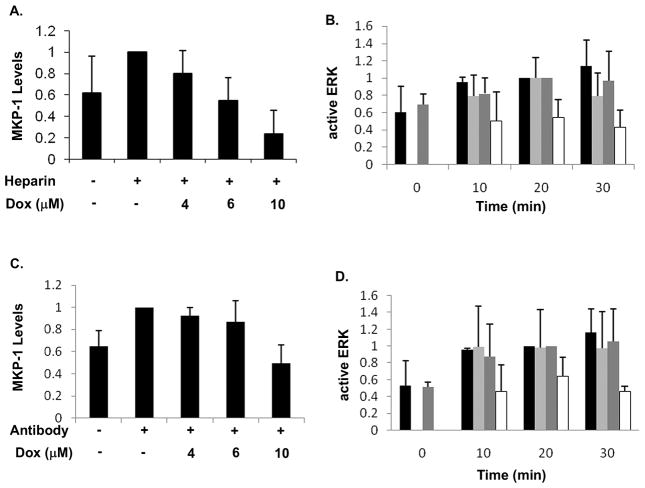Figure 6. Doxorubicin blocks MKP-1 synthesis and protects ERK activity.
A7r5 cells were grown to 75% confluence and starved. Cells were pre-treated with doxorubicin (for one hour) at varying concentrations and then treated with heparin, at 200 μg/ml for 30 min., to induce MKP-1 synthesis (panel A). The level of MKP-1 present with no doxorubicin (but with heparin) was set as 1.0. Other cells were treated with or without doxorubicin (one hr at 10 μM) followed by addition of 200 μg/ml heparin for 10 min. prior to activation with serum for varying times, and ERK activity was determined by western blotting with antibodies recognizing phosphorylated ERK (panel B). Samples without heparin that were activated for 20 min. were set equal to 1.0. Similar cell samples to those in Panel A were treated with or without doxorubicin and 18E9 anti-heparin receptor antibodies (0.8 μg/ml) and MKP-1 levels were determined (panel C). Doxorubicin and anti-heparin receptor antibodies were used to treat cells analogous to experiments in panel B followed by serum treatment (panel D) for evaluation of active ERK levels. In panels B and D, black bars represent cells treated with doxorubicin, but without heparin (B) or antibodies (D). Dark grey bars represent no doxorubicin and no heparin (B) or antibodies (D). Light grey bars represent cells treated with doxorubicin and heparin (B) or antibodies (D). White bars represent cells treated without doxorubicin, but with heparin (B) or antibodies (D). In each panel, averages from four separate experiments are plotted. The results were analyzed by ANOVA. In panels A and C, doxorubicin treatment results in significant decreases in MKP-1 levels (p<0.05). In panels B and D, doxorubicin treated samples showed no significant difference in activation with heparin or antibodies compared to serum activation, while without doxorubicin, both heparin (panel B) and anti-heparin receptor antibody (panel D) treatment resulted in significant decreases in ERK activity (p<0.05).

